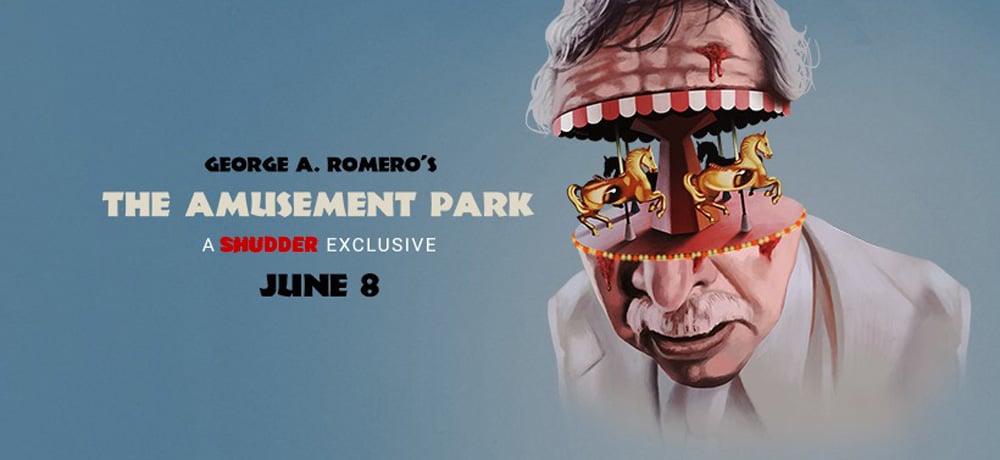






While it’s not a horror movie per se, George A. Romero’s The Amusement Park is easily one of the most unsettling and maddening viewing experiences I’ve had this year. Maybe it hit me differently now that I'm in my forties, as opposed to if I saw this back in my twenties, but I think regardless of your age, The Amusement Park is easily one of the most disconcerting films about the aging process to come along in some time, and to see it finally resurrected after all these years is a real treat for fans of Romero’s entire body of work.
The Amusement Park is technically an industrial film that Romero was hired to make on behalf of the Lutheran Society in the 1970s, but due to George’s wildly hallucinogenic and horrifying approach to the subject matter at hand, the film was all but lost until it was rediscovered just a few years ago, and now it’s been restored for fans to be able to enjoy nearly 50 years after its creation. And despite being a film that’s nearly half a century old, The Amusement Park still feels wholly relevant, especially as we saw how the well-being of the elderly became something of an afterthought throughout the course of the pandemic here in the States.
I don’t think it’s any secret that many of us are guilty of dismissing those older generations as a demographic with very little left to contribute to society (I’m sure I’ve been guilty of that myself over the years), but what I really appreciated about The Amusement Park is how well Romero immerses us as viewers in the horrors of old age from the perspectives of those older folks just fighting to prove their vitality and that they still matter, even while younger generations are keen just to leave them in the dust, and his efforts in The Amusement Park serve as a stark reminder that old age is going to come for us all, without a doubt.
The Amusement Park is centered around an elderly gentleman (Lincoln Maazel, who genre fans may recognize from Romero’s Martin) who is excited to be spending his day at a local amusement park with a handful of other elderly park goers, but he is confronted by another version of himself who warns him that nothing good awaits him in the setting, and from there, the horror unfolds. Clearly, this setting is Romero’s metaphor for a world that favors the young, or the wealthy who have the means to be able to ensure their ability to maintain their quality of life in an otherwise cruel and dehumanizing world. Various attractions demonstrate just how society continues to strip away the elderly’s ability to enjoy life by forcing them into unfair situations (like nursing homes, for example), or in another scenario, an incident at the bumper cars is utilized to show us how little society as a whole thinks of older people’s ability to continue to function in the world at large. It’s clear that George had a lot to say about the aging process and how those of us who are younger collectively dismiss the needs and concerns of these older folks who we should be looking out for in The Amusement Park, and my hope is that Romero’s message here does not go unheeded.
If you’re looking for a straight-up horror movie, The Amusement Park is not that at all, but I still think it’s amongst one of the most important works ever created by Romero, who was a filmmaker that never failed to be socially-minded with his films and the stories he was able to tell throughout his career. There were parts of The Amusement Park that truly left me agape in Romero’s brutally confrontational approach to this subject matter, and other aspects of this project left me reeling after watching the things that Maazel’s character and others are forced to endure by a society that was more than content in just leaving them behind to suffer. And while I wish The Amusement Park hadn’t been considered a “lost” film for all this time, I’m so glad to see it getting its due now, as I think there’s still a lot to learn from the lessons that Romero packs into this horrifying, disorienting, and melancholic examination of the horrors of old age.
Movie Score: 4/5